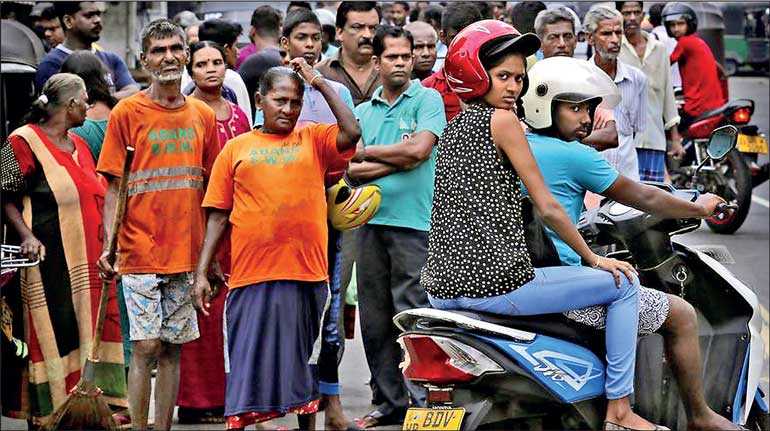Wednesday Feb 18, 2026
Wednesday Feb 18, 2026
Friday, 30 August 2019 00:00 - - {{hitsCtrl.values.hits}}

By Taylor Dibbert
In the wake of the Easter bombings, retaliation and violence against Sri Lanka’s Muslim community continues to be a major concern. It’s important to keep in mind this wave of anti-Muslim action isn’t just about the Easter attacks; long-standing grievances and past hatreds are also contributing to this discriminatory behaviour.
Particularly during these difficult times, Government officials should be doing what they can to promote social harmony and reduce ethnic and religious tensions. They should be reaching out to Muslims. Colombo should consistently acknowledge that Sri Lanka’s Muslim community is a big part of the solution. Curtailing violent extremism and ensuring that the threat of Islamic terrorism doesn’t grow will require nothing less. Yet that’s clearly not happening.
A report published last month by Human Rights Watch (HRW) does a good job of documenting the range of violent actions committed against Muslims. This includes arbitrary arrests, mob attacks, discrimination and human rights violations pertaining to religious freedom. The assault of the Muslim community has been pervasive and systematic. Even worse, it has the support of the Sinhala-dominated state.
“Government leaders, instead of fulfilling their duty to protect Muslim citizens, have at times appeared to associate themselves with Buddhist nationalist elements,” says HRW. “Many stood by when nine Muslim Cabinet and Junior Ministers felt compelled to resign after the Opposition accused them of supporting Islamist militants.”
It’s no secret that Government actors have been involved in violence against Muslims over the past few months; sadly, State violence against ethnic and religious minorities is the historical norm in Sri Lanka. And, generally speaking, violent actors need not worry about facing any consequences for their actions because widespread impunity is a historical norm as well. In its report, HRW further notes that “[a]nalysts and leaders of the Muslim community describe a vast outpouring of anti-Muslim hate speech on social media and in parts of the broadcast and print media, often making similar unfounded claims that the small Muslim population is plotting to overtake the Buddhist population— 70% of the country — in the coming decades.”
Troublingly, “[t]he hate speech includes social media calls for Sri Lankan Muslims to be ‘erased,’ and praise for atrocities committed against Rohingya Muslims in Myanmar.”
A few months after Islamic terrorism rocked a nation that was already deeply divided, Sri Lanka has largely fallen out of the international news cycle. However, the continued violence and discrimination against Muslims grows more troubling by the day.
Sri Lanka’s Government is extremely weak and incompetent. President Maithripala Sirisena and Prime Minister Ranil Wickremesinghe both have their minds on a Presidential Election later this year. During election season, Sinhala-Buddhist nationalism is consistently used to mobilise support from members of Sri Lanka’s majority community. Major political players are even more likely to ignore or condone anti-minority violence. National security and counterterrorism will be inextricably linked with Sinhala-Buddhist nationalism.
Recently, Gotabaya Rajapaksa became an official candidate for the presidency. The decision was essentially made by former President Mahinda Rajapaksa (Gotabaya Rajapaksa’s brother). Both men are deeply committed ethnonationalists who won’t hesitate to return the nation to a more authoritarian footing.
After years of incompetence and chaos, people are ready for a change. It looks like Sri Lankan voters are poised to overlook how bad the Rajapaksas have been for the nation. And, if that happens, don’t expect the anti-Muslim violence to slow down. Rather, Tamils, and Christians too will suffer.
The fallout of a huge terrorist attack continues. Muslims are living in fear. Impunity is rampant. The Government is completely rudderless and long-time racists are set to return to power. If you aren’t worried about Sri Lanka now, when would you ever be?
(Source: https://www.washingtontimes.com/news/2019/aug/19/trouble-sri-lanka/)
(Taylor Dibbert is an adjunct fellow at Pacific Forum.)